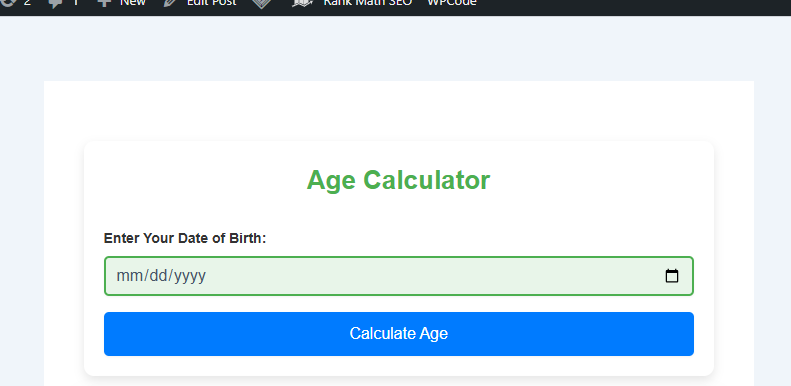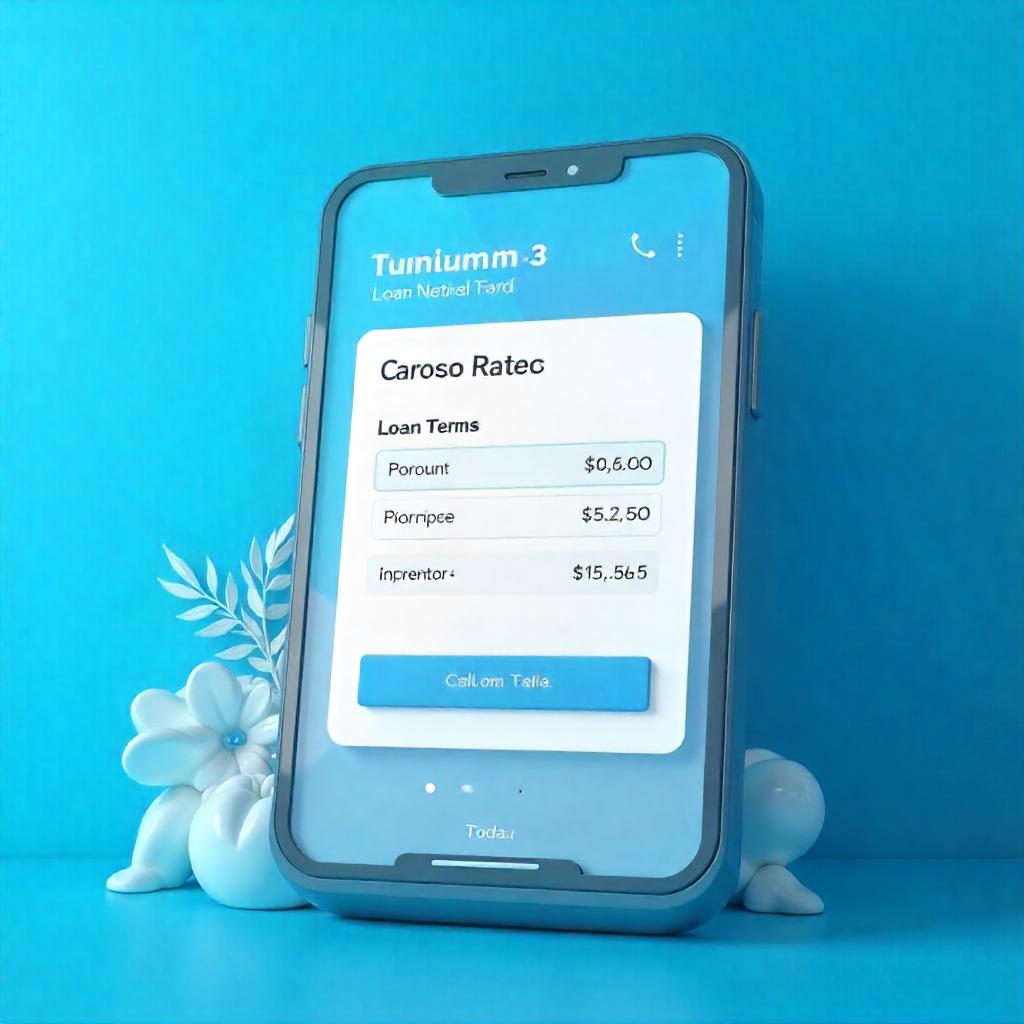
Age Calculator
At first glance, it seems pretty simple to know how old you are. It is where you must use an age calculator. An age calculator is a simple tool that helps calculate a person’s age, date of birth, start date, years and months, and number of days based on their birthdate. Why is an age calculator so useful, and how can it be used properly? In this article, we will explore the age calculator, why it is important, and how to use it.
Introduction to Age Calculator
Age calculation may seem easy at first glance, but this involves more than a change in years since a birthdate. Number of days calculations show extensive output like the exact years, months, and days since the date of birth. The age calculator conveniently takes care of leap years, the varying number of days in months, and discrepancies in the number of days of different calendars.
There are several instances where an age calculator can be handy. An age calculator can serve many purposes, ranging from confirming eligibility in terms of age for certain activities or requirements to just having clarity of the difference in age for curious people. Besides, with age calculators embedded in digital platforms, these tailored tools have never been more within reach.
Why Use an Age Calculator?
The most obvious advantage is accuracy. In particular, determining someone’s age by oneself, especially when taking leap years or different-length months into account, can lead to errors. An age calculator can be used to automate the accuracy process. In addition, an age calculator is generally very straightforward to use, ensuring that you don’t have any difficulty entering the specific dates and then receiving the final product in only a few seconds.
Another advantage is that age calculators are not only capable of providing the specific age of an individual. In general, many date calculators can output a lot of information, including the number of months and days a person has been living beyond death. Indeed, this type of information may be necessary in some situations; therefore, regardless of how far the occasion is, it’s generally beneficial to possess it.
Applications of Age Calculators
Age calculators have permeated all sorts of sectors and situations:
Healthcare
AGE IN HEALTH CARE
Age is a vital aspect of allocating suitable medical treatments and guidelines. For example, pediatricians depend on calculations of a child’s age to make sure that the child receives vaccines that are appropriate for how old they are. Establishing the upward limit as well as advancements through geriatric care may involve other factors that also dictate the age involved, which is why there exist month calculators to better assist in the skills of the medical experts.
Legal and Administrative
In legal circumstances, age has to be confirmed precisely. Date Calculator calculates the age of majority for retirement, legal responsibilities, and other instances where age is a determining factor. Age calculators are also useful for administrative purposes, including validating school enrollments or checking employment eligibility.
Education
Date of birth is important in education, especially in determining class placements and eligibility for programs that are restricted to a certain age range. Educational institutions and schools use age calculators to place the students in the right age group, thus creating a viable learning environment.
Social and Cultural Events
Date calculators are commonly employed in arranging social and cultural functions, including birthdays, anniversaries, and reunions. This makes it easier for parents and individuals to plan age-specific activities and celebrations that are appropriate, helping to create events that are engaging and enjoyable for everyone involved.
How to Use an Age Calculator
How is it done using an age calculator? Most calculators ask for two major inputs: the date of birth and the current date. The calculator takes this information and calculates the age in years, months, and days. Advanced calculators even enable users to insert future dates for calculating future ages for planning.
Here’s a step-by-step guide to using an age calculator:
Step 1: Input Date of Birth
Make sure to put in the date of birth in the way your calculator asks you to. This is often the day, month, and year. Be careful and enter the correct date for the correct calculation.
Step 2: Enter the Current Date
Most calculators will automatically fill in the current date, but some may require you to input it yourself. Check the date to verify that the results are valid.
Step 3: Calculate Age
After all required dates have been filled out, please submit to start the computation. The date inputs are processed in no time, and this generates the age in the detailed format (years, months, and days).
Step 4: Interpret Results
Go through the results of the days calculator Refer to the detailed breakdown to inform decisions or fill personal curiosity. When you are organizing an event or validating eligibility, the exact output from age calculator will help you properly.

Features of an Effective Current Date Calculator
Now that you know what an age calculator is and some of the most common types, here are a few features you may want to consider to gain the most value from your future tool:
Accuracy and Reliability
A good date calculator will only consider your current age accurately, accounting for leap years and varying month lengths. Reliability is critical, especially when the results guide important decisions.
User-Friendly Interface
It should be a simple interface to enter the dates. It’s clear what the user is doing and how you go about getting the age calculation with the results neatly displayed.
Versatility
An ideal birthday calculator should be flexible and provide more than just years as an output. Adding support for future age calculations and various calendar systems can further increase the utility of the tool.
Common Misconceptions About Age Calculators
Although they are widely used, there is some confusion about age calculators worth clarifying:
Misconception 1: Age Calculators Are Only for Older Adults
Date calculators are not only useful for old people but for every age group. Age calculators are useful for tracking developmental milestones in children or when planning events in the future.
Misconception 2: Age Calculators Are Inaccurate
Some people think simple year calculators fail to consider complexities in date mathematics. However, calculators nowadays know better, accounting for the complexities: leap years and different month lengths are all integrated into their algorithms for accurate results.
Misconception 3: All Age Calculators Are the Same
Not all calculators of age are equal. There are differences with regard to features, accuracy, and user experience. So choose the age calculator as per your needs and make sure it has the accuracy and features required for your usage.
The Technology Behind Age Calculators
Year calculators function through complex algorithms. These algorithms take into consideration the intricacies of the Gregorian calendar, such as leap years and varying month lengths. Age calculators automate these calculations, removing the risk of human error and ensuring accurate results every time.
In addition, celebrators have leveraged the advancements in technology to add start date calculators on their websites. Mobile apps and online tools have made it widely accessible, allowing for both convenience and speed.
Summary
To sum up, Years Months Calculator is a best friend that gives you accuracy, flexibility, and ease of use. This calculator serves as an invaluable tool for any age-related calculations in healthcare, legal, educational, and social sectors. Number of days calculators streamline the intricate process of age calculation, offering precise analyses that are essential for making knowledgeable choices.

Pingback: GPA Calculator
Pingback: Car Loan Calculator
Pingback: Age Calculator
Pingback: Conversion Calculator
Pingback: Vorici Calculator
Your website feels like a source of knowledge and inspiration. Thank you for offering it with us.
I’ve added your website to my bookmarks; keep up the excellent work!
Pingback: Snow Day Calculator
Pingback: BG Remove
Pingback: Time Duration Calculator
Pingback: How to Overcome Overthinking about Future
heht9b
uqxmugfypdjgfgqpizojyphnxfmufe
Pingback: Mortgage Payoff Estimator
Pingback: Determine Your Pregnancy Due Date with Our Calculator
Pingback: Ck2Generator: Crusader King Guides by Benjamin Pearce
Pingback: Day of the Week Calculator